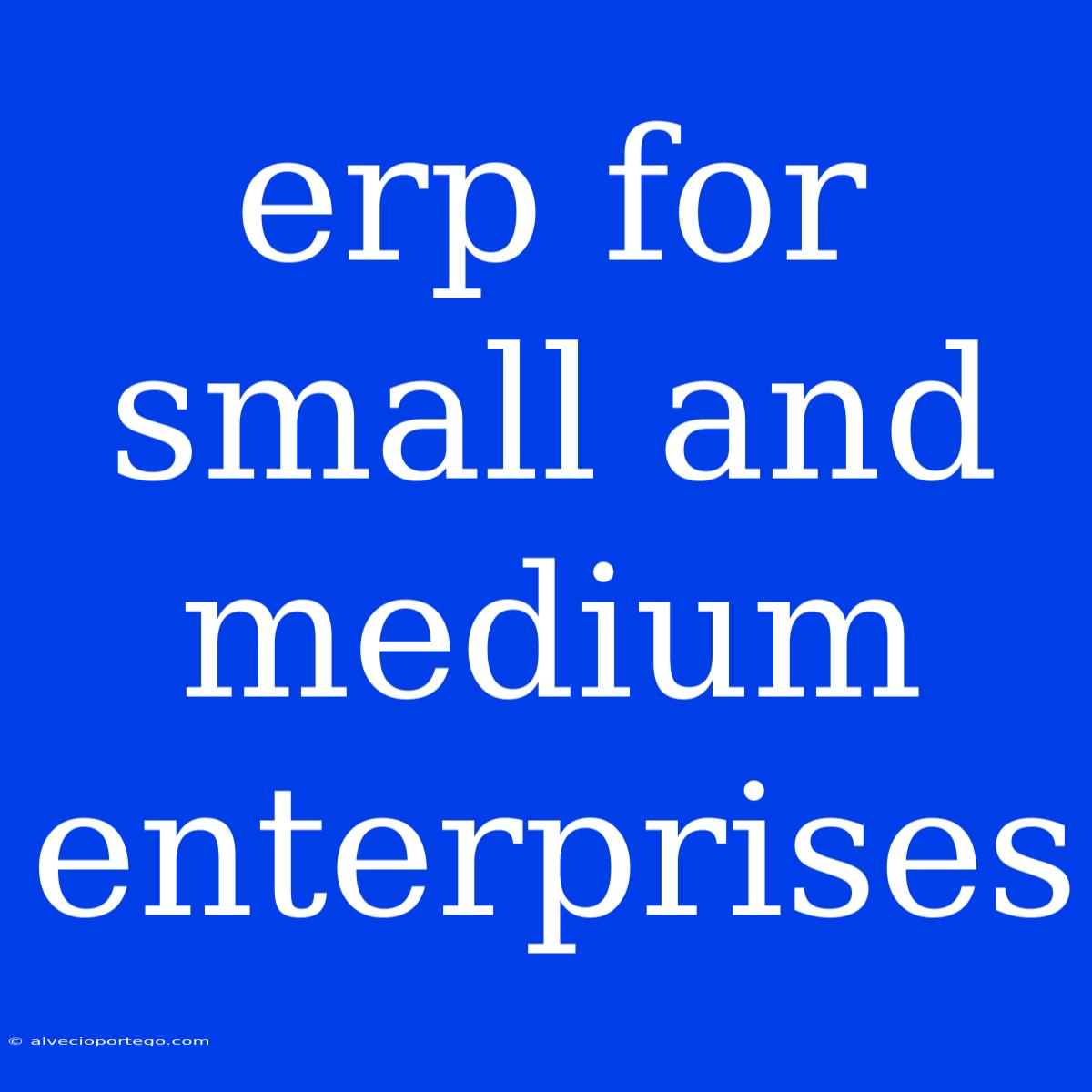ERP for Small and Medium Enterprises: A Powerful Tool for Growth
Small and medium enterprises (SMEs) are the backbone of many economies, driving innovation and job creation. However, they often face challenges in managing their operations efficiently. This is where Enterprise Resource Planning (ERP) systems come in.
What is ERP?
ERP stands for Enterprise Resource Planning. It's a software suite designed to integrate and automate various business processes across departments, including:
- Finance: Accounting, Budgeting, Financial Reporting
- Human Resources: Payroll, Recruitment, Training
- Sales & Marketing: Customer Relationship Management (CRM), Order Processing, Sales Forecasting
- Operations: Inventory Management, Production Planning, Supply Chain Management
- Customer Service: Ticketing, Support, Service Level Management
Why is ERP Important for SMEs?
1. Enhanced Efficiency and Productivity: By automating tasks and integrating processes, ERP eliminates redundant data entry, reduces errors, and speeds up workflows.
2. Improved Decision Making: Real-time access to accurate data across departments empowers businesses to make informed decisions based on facts, not guesswork.
3. Better Customer Service: By streamlining operations and providing a unified view of customer interactions, ERP helps businesses offer faster, more personalized service.
4. Scalability and Growth: As businesses grow, ERP systems can adapt and scale to meet changing needs, preventing bottlenecks and ensuring continued efficiency.
5. Cost Reduction: By optimizing processes and reducing waste, ERP can lead to significant cost savings in areas like inventory, labor, and operational expenses.
Choosing the Right ERP for Your SME
Choosing the right ERP solution is crucial. Here are some key factors to consider:
- Industry-specific features: Different industries have unique requirements. Look for ERP systems designed for your specific industry.
- Scalability and flexibility: Choose a solution that can grow with your business as your needs change.
- Budget and cost considerations: Determine your budget and explore options within your price range.
- Implementation and support: Look for a vendor that offers comprehensive implementation support and ongoing maintenance.
Benefits of Cloud-Based ERP for SMEs
Cloud-based ERP solutions offer several advantages for SMEs:
- Lower upfront costs: No need to invest in expensive hardware or software licenses.
- Scalability and flexibility: Easily adjust your subscription based on your needs.
- Accessibility: Access your data and applications anytime, anywhere, from any device.
- Automatic updates: Enjoy regular software updates and maintenance without any hassle.
Conclusion
Implementing an ERP system can be a game-changer for SMEs, enabling them to streamline operations, make data-driven decisions, and achieve sustainable growth. By carefully considering your needs and choosing the right solution, you can leverage the power of ERP to unlock your business's full potential.

